From campus to the great outdoors, a student takes flight
It’s a typical Thursday on Purdue’s campus, and Gabby Dennis is getting ready for class. While most students throw on sweats and grab a notebook on their way out the door, the senior wildlife biology major in Purdue’s Forestry and Natural Resources (FNR) Department dons a flannel jacket, field pants and mud boots. Armed with a compass, she sets out for her classroom–the forest.
 Gabby Dennis learns in an interactive, outdoor classroom during Forestry and Natural Resources' Summer Practicum.
Gabby Dennis learns in an interactive, outdoor classroom during Forestry and Natural Resources' Summer Practicum. “I can’t think of another major in which you spend as much time outside. I enjoy spending my lab courses wandering around the woods, learning about my future career.”
In her habitat
Dennis can’t recall a time in her life when she wasn’t interested in animals. Watching birds flock to the bird feeder in her backyard sparked a fascination with birds, which inspired her to volunteer at Black Swamp Bird Observatory, a bird banding station near her hometown of Toledo, Ohio, at the age of eighteen.

“Something clicked inside my head. I thought, maybe this bird thing is something I want to stick with.”

After her freshman year, Dennis’ passion for birds grew as she worked as a sea bird research assistant in Middleton, Alaska, solidifying her desire to pursue ornithology, or the study or birds. Dennis spent her time nest searching, banding birds, checking for and monitoring eggs, discovering all sorts of strange and wonderful species along the way.
 Glaucous-winged Gull chick
Glaucous-winged Gull chick 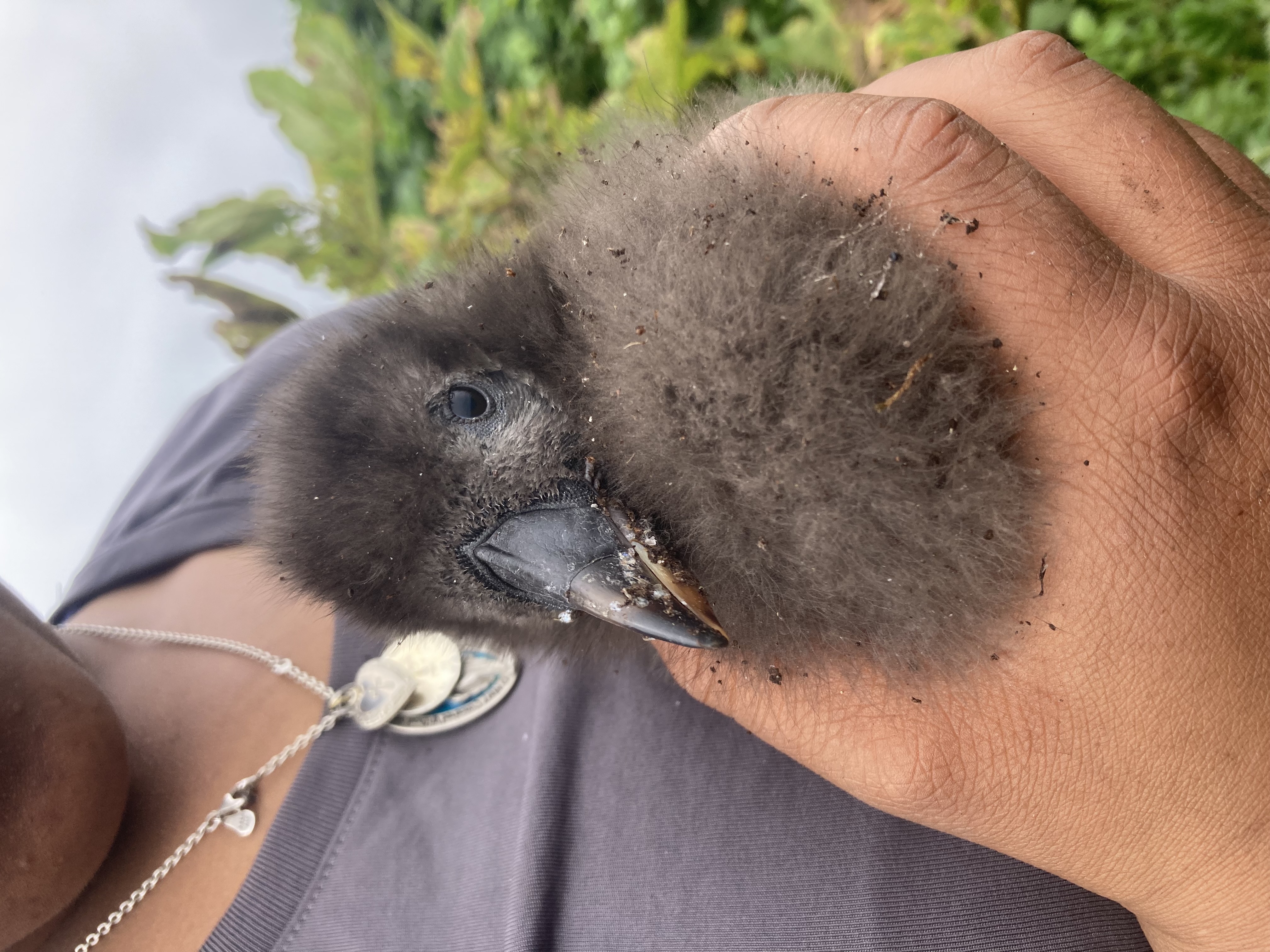 Tufted Puffin chick
Tufted Puffin chick  Dennis explores Alaska
Dennis explores Alaska “I worked with different types of gulls, Tufted Puffins, another type of bird called a Rhinoceros Auklet. They have feathers that make them look like they have a mustache and eyebrows. They look like something out of a Dr. Seuss book. They’re probably my favorite bird!”

As Dennis’ wardrobe shows, hands-on experience is a key element of any FNR students’ education at Purdue, from creating a live rabbit-tracking grid at the Purdue Wildlife Area to identifying over 100 species of trees at Purdue’s Martell Forest. Perhaps an FNR students’ most pivotal hands-on experience and main draw to Purdue, however, is summer practicum, a five-week intensive camp in Michigan’s Upper Peninsula.



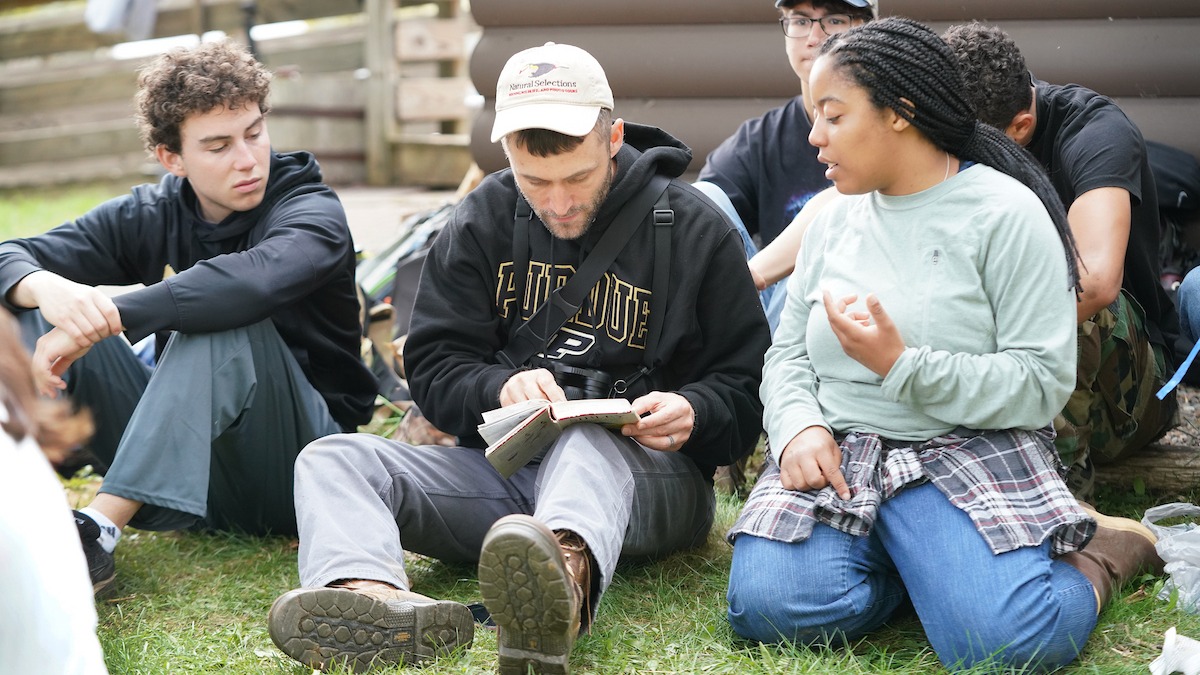
“I jokingly refer to practicum as the Olympics of the wildlife major. All the skills they teach you over the semester come together at one time, and you learn what it really means to be a wildlife biologist. I struggled to find another university with a program close to this immersive–I remember talking with wildlife professionals, and they said there’s nothing like this anywhere else.”
The real-world experience gained at practicum helped Dennis secure competitive summer internships and excel at her job. Practicum also built a tight-knit community within Purdue’s large student body, providing a lasting network of young wildlife professionals.

“You go into practicum thinking you don’t know anybody, but after traipsing through the woods in crazy weather with a bajillion mosquitos, you can’t help but bond with your cohort. We’re all going through the same thing, its crazy fun, and we’re all close now. There’s always a friendly face you’ll see on the ag side of campus.”
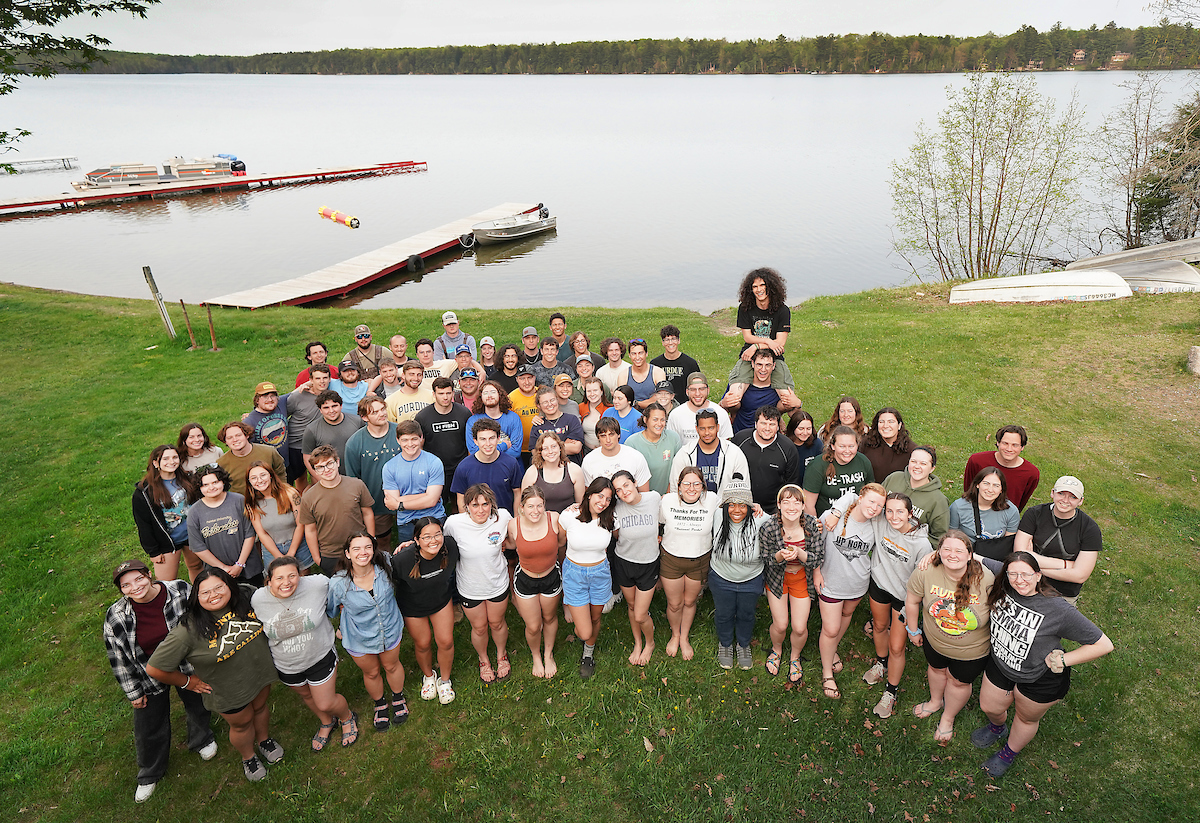
GROWING HER WINGS
In addition to course labs, Dennis draws on her undergraduate research and internship experiences to prepare her for a career working in the field.
In her undergraduate research, Dennis collects data in the field and synthesizes this information through statistical population modeling and computer simulations. This allows her to learn how to conduct all stages of wildlife research. In professor of quantitative ecology Patrick Zollner’s lab, which looks at the effects of human disturbance on wildlife populations, she works on bobcat population modeling. In professor of wildlife ecology Barny Dunning’s lab she monitors bird populations in the West Lafayette area, such as Purdue’s Martell Forest. Dunning is also Dennis’s advanced ornithology professor.
“Going out at the crack of dawn, setting up mist nets, banding birds, taking measurements, all of these things I’ve gotten to do in Dunning’s lab has been one of my favorite parts of my college career.”
 Barny Dunning explains how to properly set up mist nets at Summer Practicum.
Barny Dunning explains how to properly set up mist nets at Summer Practicum. 

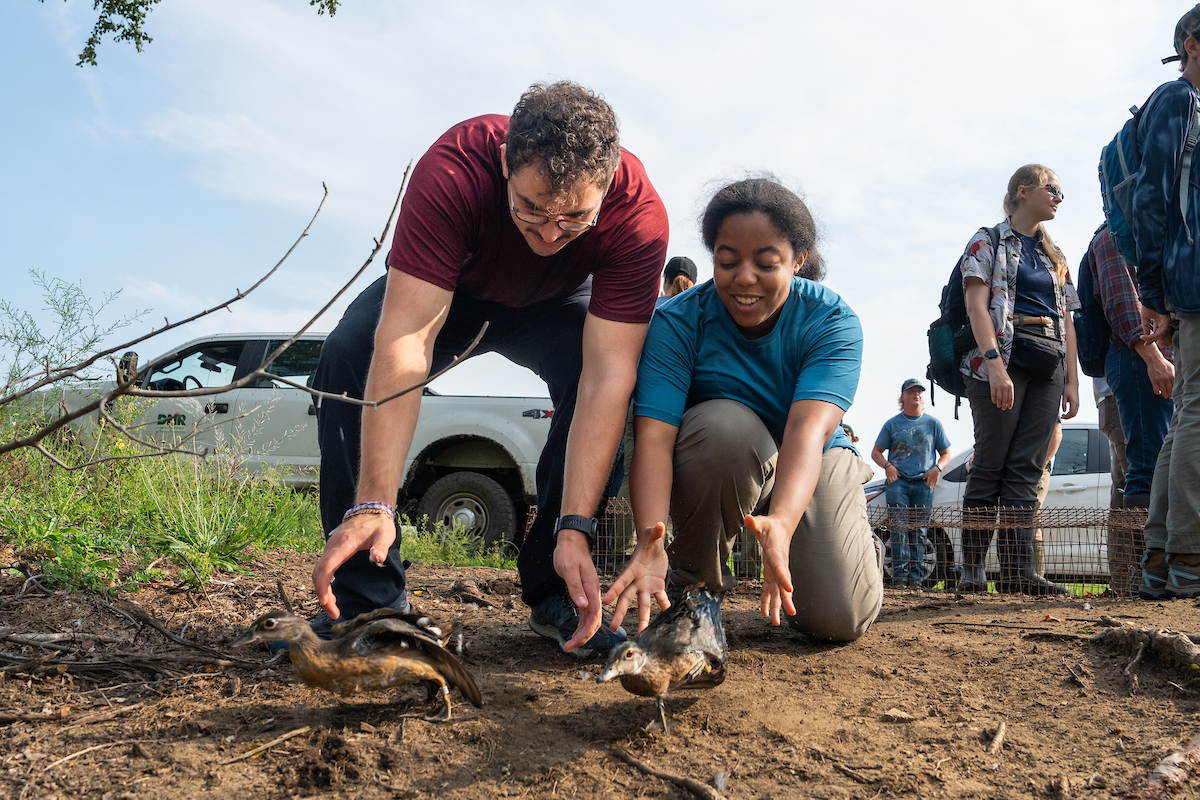
“Every bird has its own band number, like a social security number, which are tracked by the US Geological Survey. By simply having a bird in hand, researchers can look up its number to see its migration patterns, survival data and measurement changes.”
This data tells a story, both about a bird’s life and the greater environment. For example, if a bird is banded at a certain location and banded years later in a different place, or if an absence or presence of a species in a location change over time, scientists may be able to assess habitat quality and environmental health, informing wildlife conservation efforts. With a particular passion for endangered species, being able to make sound conservation decisions will be critical for Dennis’ career.
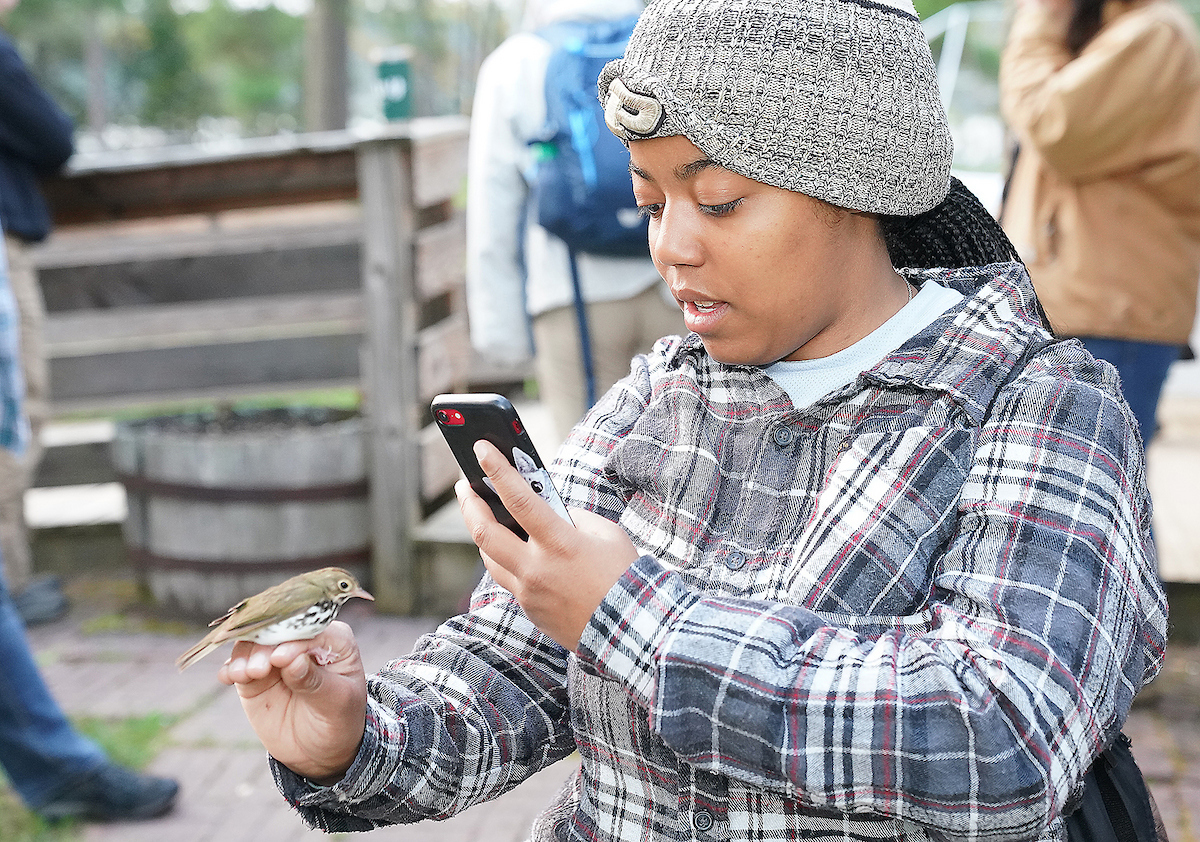
Banding for conservation purposes was the aim of Dennis’ most recent summer internship as a field technician at the Hubbard Brook Experimental Forest in the White Mountains of New Hampshire, where she searched for and monitored oven birds. Despite the area’s local bear and moose residents, Dennis found her job peaceful and navigated the forest alone with confidence, earning extra responsibility as she demonstrated her advanced competency in the field. She attributes this to hands-on skills learned through her undergraduate research and practicum.
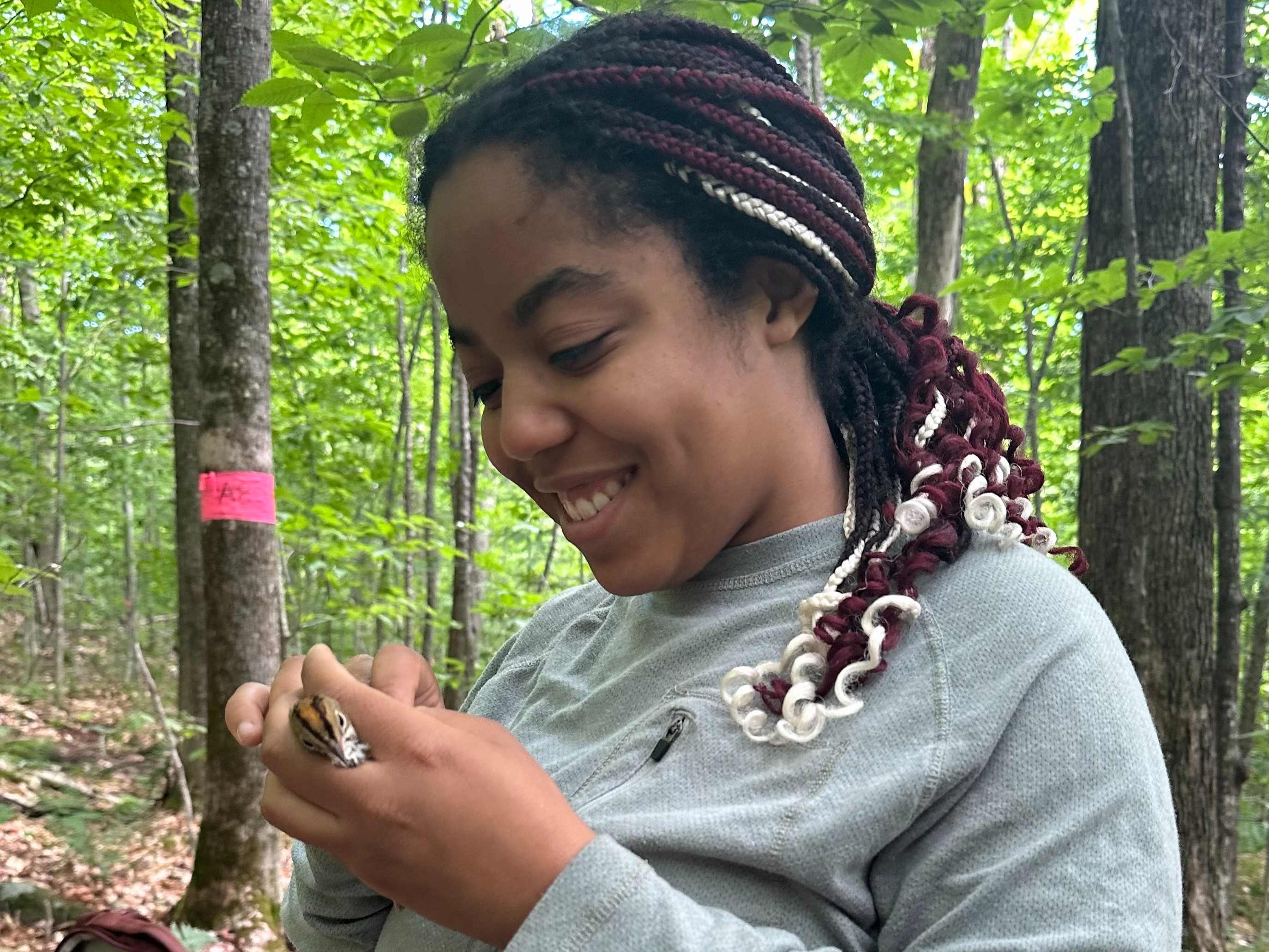
 Oven bird
Oven bird 
“Each day I would wake up at the crack of dawn, and I’d be wandering around the forest by myself with a GPS. I thought, I hope I still got it–the navigation skills we learned at practicum–and luckily, I did. If I hadn’t learned those skills, my job would’ve been a lot more difficult.”
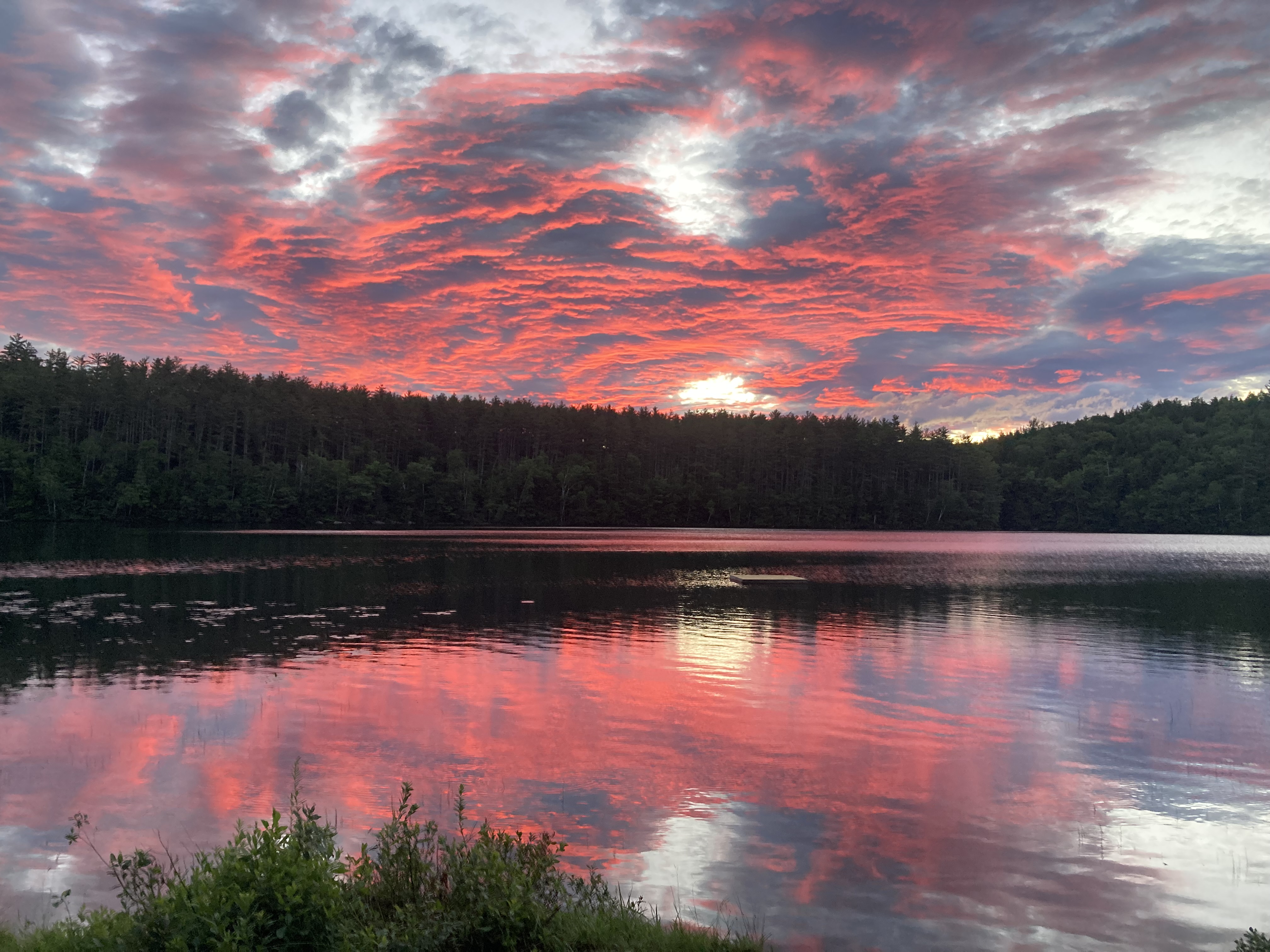
TAKING FLIGHT
It’s Dennis’ last semester at Purdue, and the senior feels well-prepared for a future in ornithology. After a gap year spent traveling the country, picking up field tech jobs and getting more wildlife experience, she plans to earn a master’s degree in wildlife biology. With her experience and undergraduate and graduate education, Dennis envisions herself working on research projects at a banding station or acting as head of ornithology for a conservation organization, focusing on endangered species.
“Working with endangered birds is the ultimate goal. My conservation philosophy is, ‘help whatever needs help the most.’”





